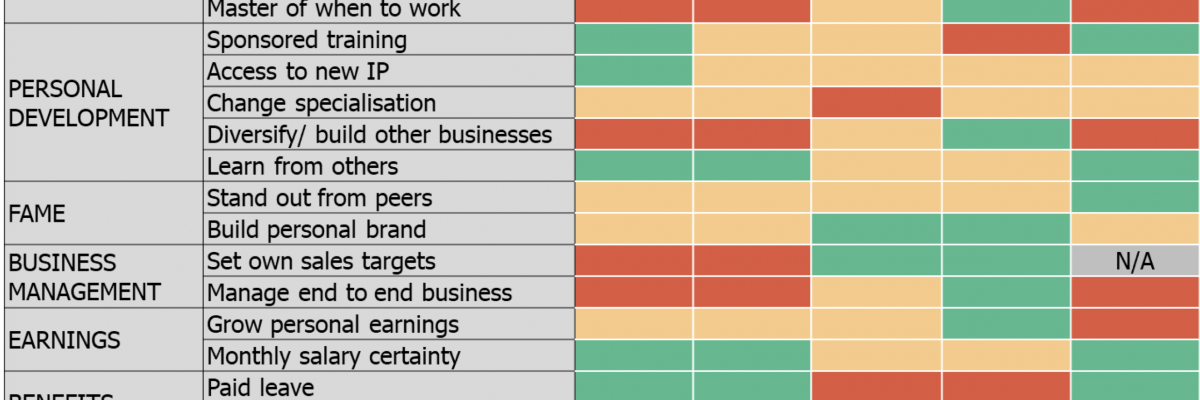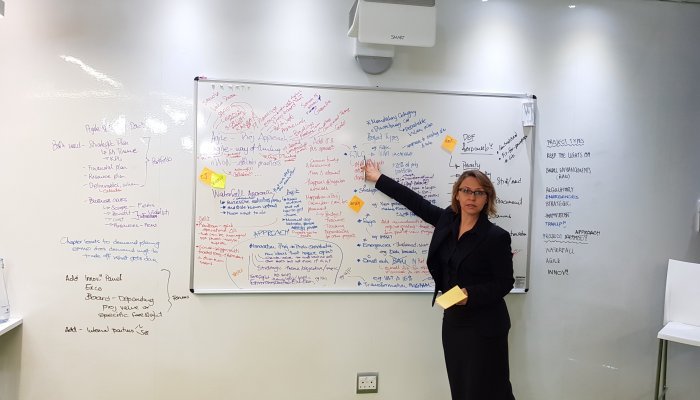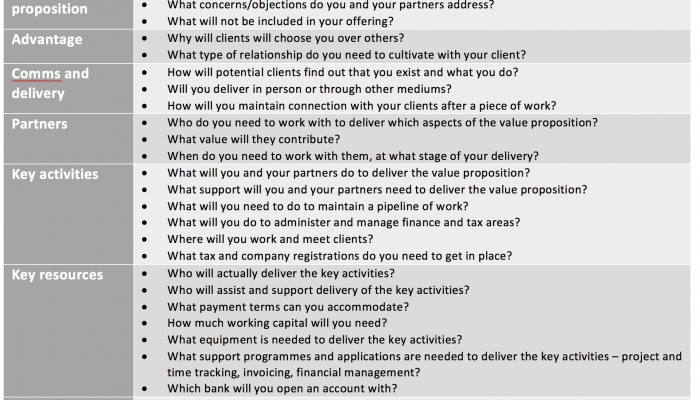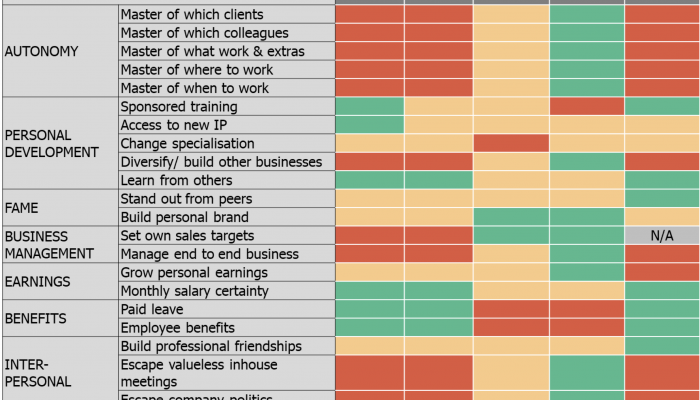The first step to becoming a successful consultant is simple: have an offering people will pay for. Bear in mind, however, that despite relatively low barriers to entry, succeeding means meeting consistently high expectations. As a consultant you are only ever as good as your last job.
If that doesn’t deter you, good! But beyond a good offering and a solid reputation, becoming a successful consultant and building a sustainable consulting career requires specific attributes and skills.
Four characteristics of top consultants
The best consultants I know inherently have, and are invested in, developing these “fundamentals”:
1. Irrepressible drive to maximise time and effort
The best consultants fit more into a single day than most. They deliver on what others would deem unrealistic deadlines and take last-minute requests and changes in their stride. They make time for non-billing priorities, too. It is not a stress; it is just how they are. It thrills them to achieve a lot in one day, every day.
What this looks like:
· You work quickly, always thinking of the best way to make things easier next time.
· You push yourself to accomplish by promising things that you then MUST deliver on and deliver well.
· You master using every available moment: 10 minutes waiting in the doctor’s rooms, 15 minutes before a meeting – it all adds up.
· You outsource to others who can do things better and/or faster.
2. Always seeking to improve impact
The best consultants have a deep, unwavering passion to improve and increase their impact. It permeates everything they do. They are excited to try new things, relying on instinct, if needed, to estimate the potential for success. They are exhilarated when they know they have upped their game, even in a small way.
What this looks like:
· You entertain the internal voice that perpetually questions how to be more effective, produce more, increase quality, improve delivery, and contribute more value.
· You give constructive feedback and seek it for yourself. You find ways to address criticisms and improve on what is already valued.
· You jump at the opportunity to work with or learn from others at the top of their game. It is all about continuously improving – small improvements at every opportunity make for incredible leaps over time.
3. Unquenchable curiosity and thirst for new knowledge
The best consultants seem to have an endless supply of experience-based stories, interesting facts, provocations and perspectives to share. They are known for upskilling fast and gaining sufficient knowledge on a new topic to hold an opinion and be able to converse around it.
What this looks like:
· You constantly gather information by reading, listening, attending and engaging.
· You ask questions and show interest in others.
· You cultivate knowledge and distinguish yourself by sharing what you know.
· You work to develop a large knowledge base, enabling you to make connections between concepts, industries, businesses and people.
4. Resolute determination to make others shine
Top consultants thrive on being the catalyst to “turn clients to gold”. Their own “fame” is derived from this. These consultants are in demand and are often able to cherry-pick the best clients and team members to work with. They up their clients’ and teams’ distinctiveness by adding value where it matters and inspire them to try new things. They increase productivity and stretch thinking capacity by helping those they are working with to identify opportunities behind surface problems and develop a solutionist mentality.
What this looks like:
· You ensure that you understand how the output you are delivering will be used to produce something fit for purpose. For example, rather than producing a standard presentation deck and written document, you might produce low-fidelity prototypes, infographics or display boards.
· You teach your clients and teams to do things differently.
· You work to deliver quick wins early on.
· You explore problems with clients and co-create hypotheses that extend beyond the initial concept.
· You ask questions candidly, offer provocations and deconstruct jargon that clients use.
· You unpack potential problems and consider their impact in areas that clients may not have considered.
· You bring in other experts to add to your thinking and to facilitate collaboration, often beyond your client’s company, industry and ecosystem norms.
· You help clients prioritise and ground initiatives, practically.
The consulting industry is extremely competitive. They are known for upskilling fast…
Career options
If you identify with these characteristics, the next step is selecting the consulting option that you are most interested in and suited to employment within a consulting firm (large, boutique or specialist); being an independent consultant (sub-contracting to firms, fully independent, or a combination); or employment as an internal consultant within an organisation.
The table below highlights the most common criteria people consider when choosing to change their job or career, marked against the potential to achieve within the different consulting options.

Finding your fit
Besides choosing a firm that does work that you are interested in, personal fit is a key consideration. Nosing around the company website and doing other desktop research is a good starting point, but it’s also advisable to chat to people who work in the firm and not just with the ones tasked with recruiting you.
Consulting is infamous for intense pressure and unrealistic demands, so exploring how the firm defines work-life balance is worth investigating. Explore whether the people in the firm are those you could work well with.
Would-be consultants can also get hints of a firm’s culture from how they are treated during the recruitment process. It is perfectly acceptable to assess the firm during your own interview process. Come primed with questions like, “What does the firm value and reward in a consultant”.
Consultant recruitment process
Recruitment is a rigorous procedure with multiple rounds of interviews. It generally takes about two months to complete and includes:
· Resumé screening
· Behavioural assessment questionnaire
· Psychometric insights
· Action/case interview
· Culture fit interview
· Experience assessment interview
· Financial offer and terms
Nail the case interview
The case interview is the most nerve-racking part of the recruitment process. It requires presenting a solution to a real-world challenge and aims to simultaneously assess thinking problem-solving and mathematical competence. It also evaluates:
· Engagement and communication
· Presentation of facts, assumptions and provocations
· Making connections between the case and things that are happening elsewhere
· Resourcefulness and creativity (finding alternate, imaginative and even optimistic solutions)
· Adaptability under pressure
· Professionalism, authenticity, confidence and enthusiasm
It’s important to come prepared. There are numerous books and resources available online aimed at helping consultants prepare for such interviews.
Positioning yourself
New consultants, especially those hired for specific skills, can be pigeon-holed in a firm for operational efficiency. However, you can reposition yourself.
Consultants who are not getting the type of work and projects they want often complain and ascribe luck and favouritism to those who do. In my experience, most of that luck is proactivity.
Upskill in the topic, area, client or industry that you want to work on. Take the initiative, demonstrate interest, knowledge and ability, and you will become someone people seek to work with. Share articles and events, join relevant groups or volunteer to contribute to proposals, research, articles and new ideas. Top consultants distinguish themselves and become visible and sought after.
Distinction may come in the form of deep insight, visualisation, storytelling, ideation, facilitation or design. Find ways to demonstrate and develop your distinction and your knowledge. Securing an appropriate new client is another way to reposition yourself but do this within the firm’s protocols.
Consulting is infamous for intense pressure and unrealistic demands...
Going it alone
If launching a career as an independent consultant is your goal, there are some considerations that should be addressed upfront:
Consideration
Clients
· What size client will you target, and at what level within an organisation?
· Will you target a specific industry, demographic or geographic group?
· Who will you not accept work from?
Value proposition
· What specific need will you and your partners fulfil?
· What concerns/objections do you and your partners address?
· What will not be included in your offering?
Advantage
· Why will clients choose you over others?
· What type of relationship do you need to cultivate with your client?
Communication and delivery
· How will potential clients find out that you exist and what you do?
· Will you deliver in person or through other mediums?
· How will you maintain a connection with your clients after a piece of work?
Partners
· Who do you need to work with to deliver which aspects of the value proposition?
· What value will they contribute?
· When do you need to work with them, and at what stage of delivery?
Key activities
· What will you and your partners do to deliver the value proposition?
· What support will you and your partners need to deliver the value proposition?
· What will you need to do to maintain a pipeline of work?
· What will you do to administer and manage finances and tax?
· Where will you work and meet clients?
· What tax and company registrations do you require?
Key resources
· Who will deliver the key activities?
· Who will assist and support delivery of the key activities?
· What payment terms can you accommodate?
· How much working capital will you need?
· What equipment is needed to deliver the key activities?
· What support programmes and applications are needed to deliver the key activities – project and time tracking, invoicing, financial management?
· Which bank will you open an account with?
Costs
· Taking loss of employee benefits and of guaranteed full-time work into account, how much do you need to earn, and by when?
· How much will you pay your partners, and on what terms?
· What other major costs must you consider?
· Will you recoup other costs such as travel and stationary, and how will you do this?
Earning
· What is the going rate for independent consultants like you?
· On what basis will you bill – hourly, value-based?







